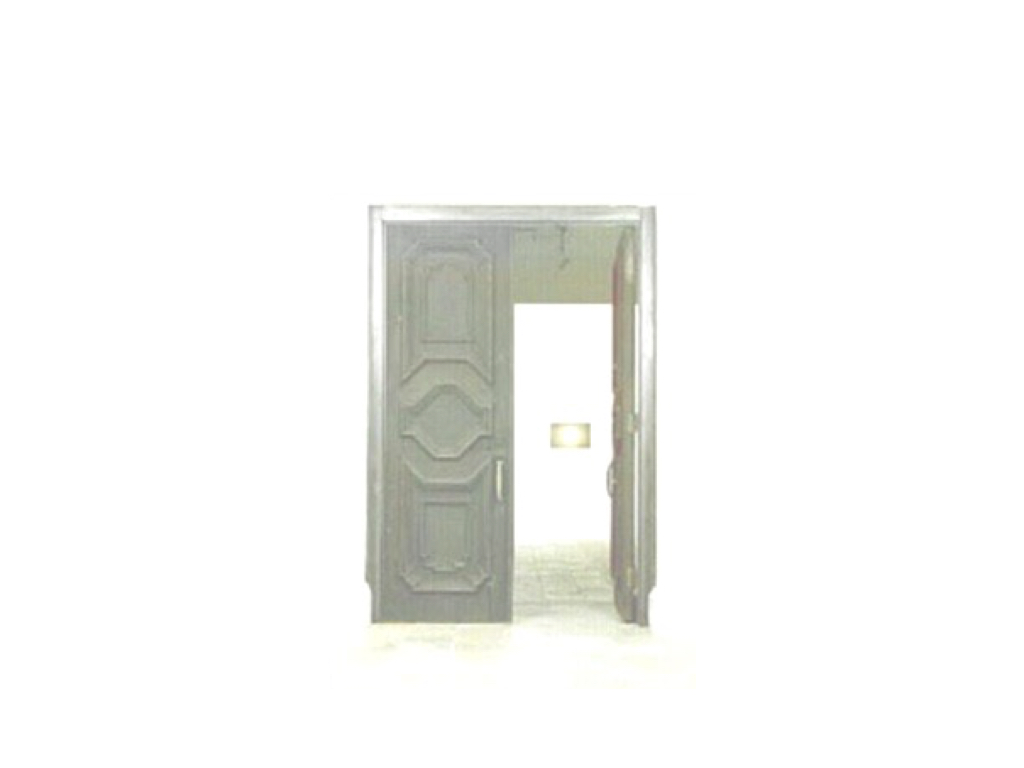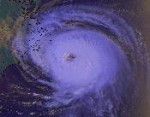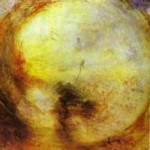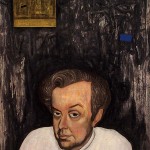September 28 2000
Reception for A Still Small Voice.

bringing science into art and art into science
September 28 2000
Reception for A Still Small Voice.
August 12 2000
Reception and Sign-up 7:00 pm
Scheduled Poets 8:00 pm
Jill Bernstein, Desiree Gordon, and James Parker
A film short by “Cory” 8:45
Open Mic 9:00 pm
Refreshments will be served

An Evolving Exhibition
The Artist Search Project is an exhibition-in-progress organized by Dactyl interns. We invite you to attend the first installment in July and return to view new works by emerging artists as the show progresses towards the final closing exhibition. The exhibition included works by John Arruda, Aaron Gilbert, Jackie Kingon, Jim Klein, Christina Park, Pam Smith, James Stuart, Jake Benton, Matthew Sinclair Kinney, and Emily Orling. Continue reading “Artist Search Project”
May 15 2000
A screening of two titles Shirtsleeves by Bruce Bennett and Ode by Kelly Reichardt.
May 12 2000
A book party for The Figures Press and Roof Press.
Chaos in literature, science and art. Sponsored by Pfizer Corporation &Herbert Lee Grayson Foundation Panel Discussion:
Tuesday, April 4th & Wednesday, April 5th, 6pm
Angus Fletcher, CUNY on Spenser’s “Mutability Cantos”and the poetry of John Ashbery
Thursday, April 6th, 6pm John Ashbery, Bard College, poetry reading
Jim Crutchfield, Santa Fe Institute, on the physics of chaos
Joan Richardson, CUNY, on science & poetry
Angus Fletcher, CUNY, respondent
In history, chaos is anarchy, mutability, disorder, chance, indeterminacy, flux, non-linearity, entropy, irrational thought, creativity, destructive emotion and the primal source of all that is.
April 4-6 2000
Retrodiction –The History of Chaos in Literature, Science and Art.
Retrodiction is a series of audio recordings designed for an Internet experience with visual, musical, interactive, and educational components. The series will explore the concept of chaos and the fundamental question: Do things happen by chance? or does nature govern by fixed laws? The goal is to increase public understanding of science through fiction, poetry, and philosophical writings. The project is a collaborative effort among Dactyl Foundation for the Arts and Humanities, the Santa Fe Institute, and the Art and Science Laboratory. Continue reading “Retrodiction”
Mar 30 2000
Reception for the Antioch Review with Cynthia Fuchs Epstein.
March 16th 2000
St. Paddy’s Jam 2000, a poetry reading featuring Colum McCann, Tom Kelley and friends.
March 14th 2000
A reading from The Letters of Alphaville by Raphael Rubinstein.
March 4th – April 1 2000
Sculpture exhibition by Peter Begley.
[simpleviewer=10,1000,740]
February 28th 2000
“The Gods of Times Square” is a documentary by Richard Sandler.
February 10th 2000
A poetry reading of works by Mei-Mei Berssenbrugge and Krysia Jopek.
January 24th 2000
Honorary Chair: John Ashbery
Curators: John Bissell, Willem Dafoe, Sean Gullette, Lyle Hysen, Elizabeth LeCompte, David Levine, Kate Valk. Committee: Anurag Bhargava co-chair, Debra Scherer co-chair, Henry Buhl, Michael Caruso, Tom Fontana, Massi Ghausi, Agnes Gund, Eva Herzigova, Sarah Lee, Rick Montgomery, David Sussman, Hillary & Bradley Thomas, David Thorpe, Jed Weintrob. Projects: Darren Aronofsky, Peter Care, Larry Clark, James Crutchfield, Jim Findlay, Michael Galinsky, Suki Hawley, Lewis Klahr, Ken Kobland, Alex McDowell, Jon Moritsugu, Ret.Inevitable, Richard Sandler, Leslie Thornton, Todd Solondz, Brett Vapnek, The Wooster Group.
November 18th 1999
A reading of works by Bernadette Mayer and Dan Machlin.
‘Information Paintings,’ an exhibit by James Gilroy also featuring “Don’t Let Go”, a digital documentary with James Gilroy & Larry Clark directed by Neil Grayson
and edited by Chris Schwerin.
Art is born at “the edge of order and chaos,” to borrow Christopher Langton’s phrase, where novel patterns are related to their predecessors, emerging from while transforming convention. According to Langton, who is a central figure in the field of evolution theory, life is only possible within a special equilibrium of order and disorder. The same is easily said for the evolution of art. Science has recently done much to inform the arts. Specialists in the phenomenon of self-organization–who would include Langton as well as Margaret Boden, Murray Gell-Mann, Stuart Kaufman, and lIya Prigogine–have increased popular understanding of how, overtime, order inevitably emerges out of disorderly chance events. Continue reading “James Gilroy, information paintings”
October 28th 1999
A reading of works by Tom Breidenbach and Jonathan Goodman.
![]() Sept 23 – Oct 30 1999
Sept 23 – Oct 30 1999
An exhibit of a selection of paintings by artist Anne Dunn.
 Complexity Science and the Arts
Complexity Science and the Arts Online exhibition 1999-2001
Online exhibition 1999-2001
Much of the later work of Joseph Mallord William Turner (1775-1851) is the epitome of abstraction, that is, his images are not merely nonrepresentational. The paintings featured in this online exhibition are truly reified representations of seascapes, landscapes, and cityscapes. They are so reified, in fact, as to be almost symbolic of what they depict rather than illustrative. Dactyl Foundation for the Arts & Humanities presents “Turning on Turner,” an online exhibition of contemporary artists whose work is influenced by the great British painter. The show includes works by Dozier Bell, Pamela Bowers, James Crosby, Joy Garnett, Neil Grayson, and W. Whitney Smith III. Shown left is Turner’s variously named Light and Colour (Goethe’s Theory)- The Morning after the Deluge- Moses Writing the Book of Genesis (c. 1843), Oil on Canvas, 787mm x 787mm Continue reading “Turning on Turner”
May 20th 1999
A reading of works by C.D Wright & Camille Guthrie.
April 30 1999
A reading of Avec: A Journal of Writing.
April 27th 1999
The Antioch Review, with Victor Navasky.
April 8th 1999
A reading involving Galway Kinnell, Marie Ponsot, Agha Shahid Ali, Stephen Sandy, Alan Michael Parker, Chuck Wachtel.
 March 6 – April 10, 1999
March 6 – April 10, 1999
This marks the first exhibition of portraits by an artist whose reputation was established as an abstract painter. Six portraits will be shown along with a large abstract painting to provide a context. Portrait subjects include: Poet John Ashbery, who, among numerous other distinctions, has received the MacArthur Prize Fellowship and the Pulitzer Prize, and has twice been named a Guggenheim Fellow; he is a member of the American Academy of Arts and Letters and the National Academy of Arts and Sciences. He is also a chancellor of the American Academy of Poets. Novelist Ted Mooney, Senior Editor of Art in America, who has received awards from both the Guggenheim Foundation and the Ingram-Merrill Foundation. Actress,Melissa Errico, who is known for her achievements on the Broadway stage. Poet, author and art critic, John Ash. Poet and art critic, Tom Bridenbach. Yannis Dellatolas, 20th century music expert and photographer. Elizabeth Schub, filmmaker. Continue reading “Stephanie Rose, paintings”
February 25th 1999
A reading of poetry by Jackson Mac Low and Jena Osman with introductions by Stephen Mounkhall and Sharon Lattig. Continue reading “Jackson Mac Low and Jena Osman”
December 11th 1998
A reading of works by Nuala Ni Dhomhnaill and Paul Muldoon with introductions by Oona Frawley.
Every language is its own world, and I find myself an immediate tourist in writing this introduction, in English, about Nuala ni Dhomhnaill’s Irish poetry, because the Irish that is Nuala’s is a world of quite different dimensions to the one we inhabit when we use English. Reading her poetry, then, even if in the translation that has made her work available to a larger, non-Irish reading public, is an Immram, a holy voyage of sorts, like those the Irish scribes recorded centuries ago. Continue reading “Nuala Ni Dhomhnaill and Paul Muldoon”
 November 28 – 24 December 1998
November 28 – 24 December 1998
A group show of paintings and drawings by Camille Eskell, Katherine Kadish, Christina Park, and Alexandra Wiesenfeld.
Continue reading “Group Show, paintings and drawings”
November 5th 1998
A reading of works by Raphael Rubinstein & Max Henry with introductions by Neil Grayson and Stephen Mounkhall.
October 29,1998:
With Tom Breidenbach, Mark Daniel Cohen, Jonathan Goodman, and Sharon Lattig.
Moderated by Victoria N. Alexander. Continue reading “Science and Art, panel”